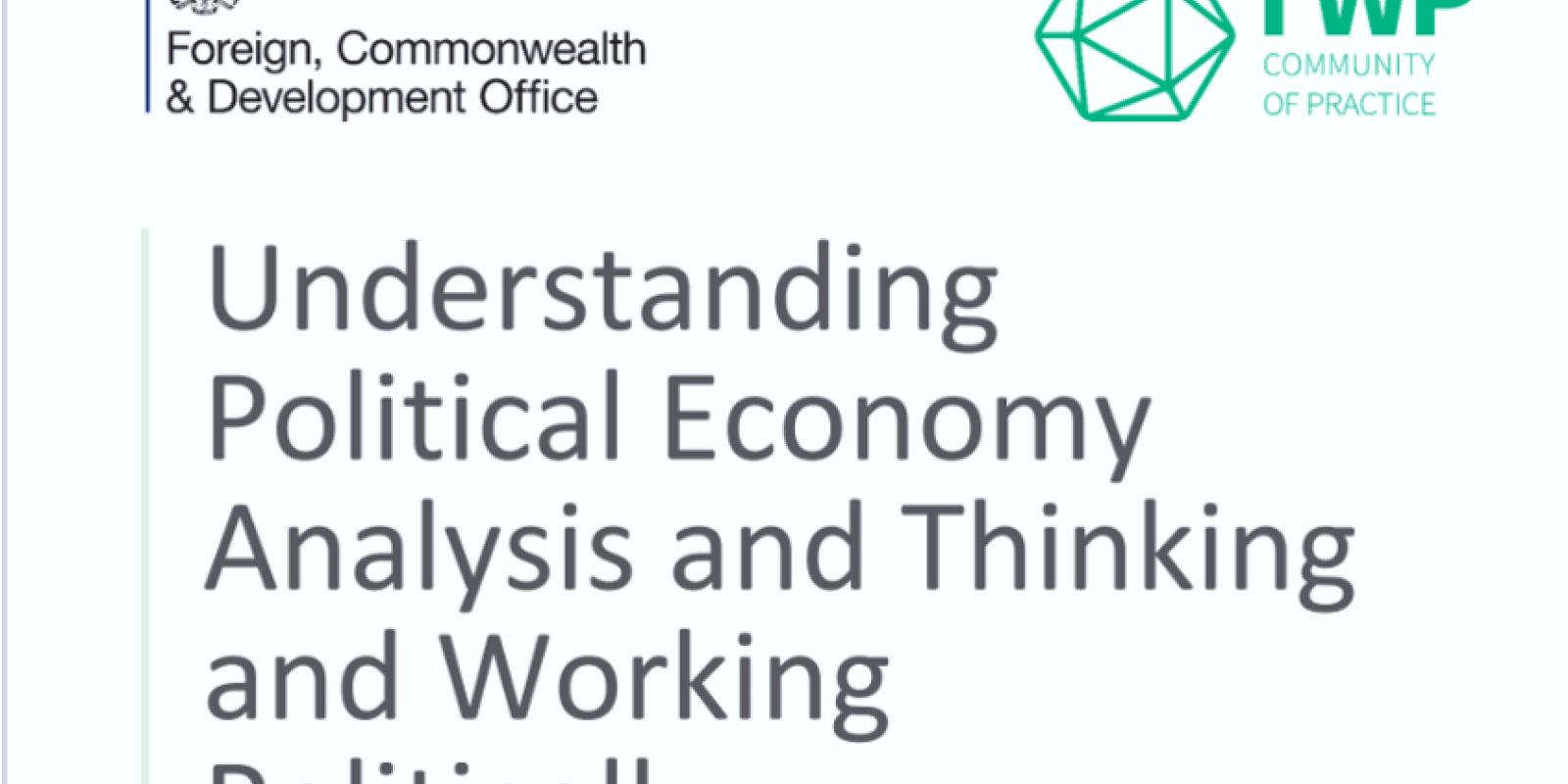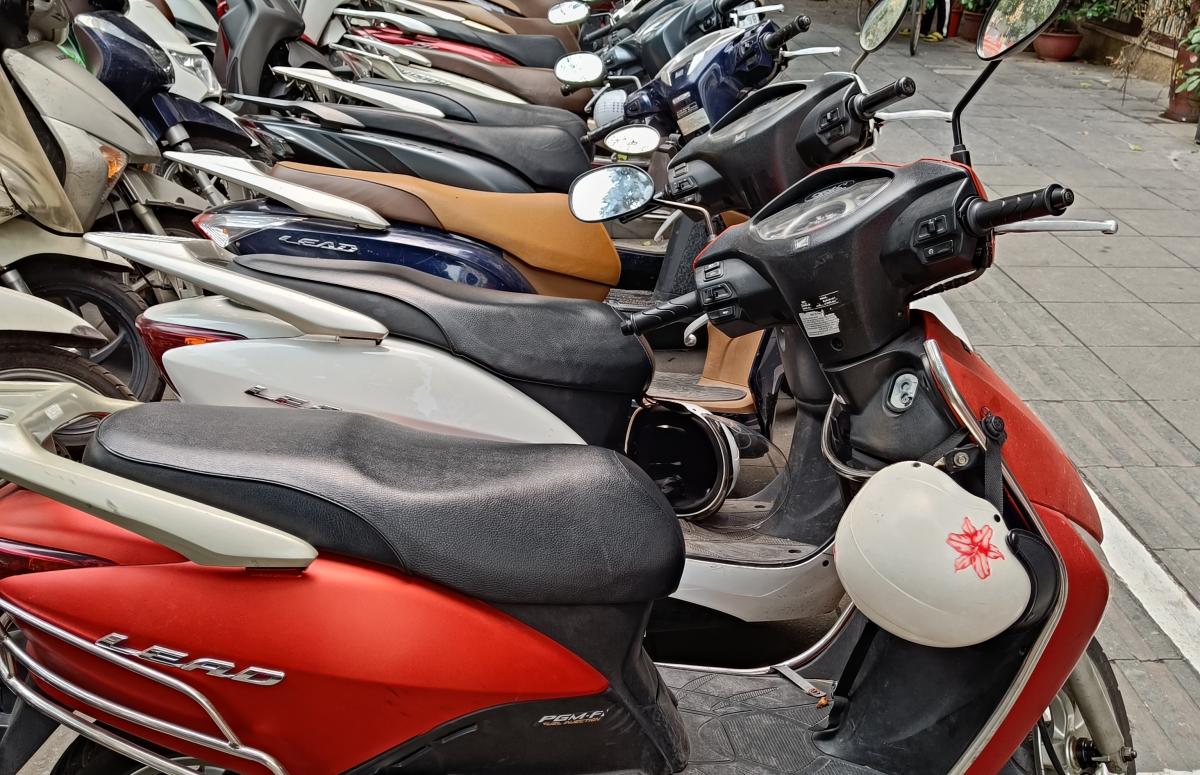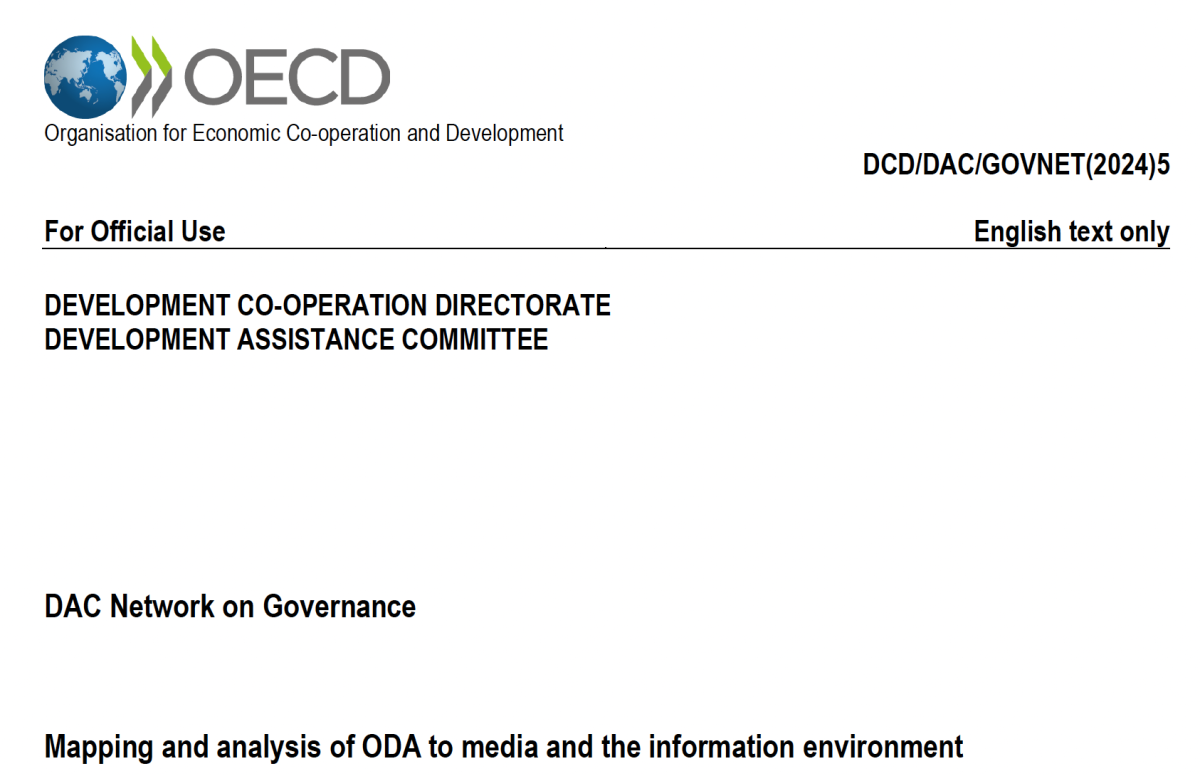
New FCDO Political Economy Analysis Guidance published
Laure-Hélène Piron and Alina Rocha Menocal contributed to this Foreign Commonwealth & Development Office (FCDO) guide on applied political economy analysis (PEA) which updates the UK Department for International Development's 2009 original guidance.
This guide provides an overview of PEA and explains how analytical work should be planned and completed. Applied PEA is a set of concepts, questions and research techniques, developed over several decades. PEA provides a clearer picture of the country, region or sector in which development assistance is being provided. It does this by systematically exploring the underlying issues behind policy, and decisions, including those elements that are counter-intuitive. The PEA approach aims to identify a more realistic response which is politically feasible and technically sound.
This is a joint guide from the FCDO and the Thinking and Working Politically Community of Practice (TWP-CoP). The TWP-CoP is a global network of practitioners and researchers in development and global affairs committed to promoting more politically aware to approaches to how change happens and why. The TWP-CoP Secretariat has been hosted by the University of Birmingham with support from FCDO.
The guide also provides an introduction to techniques and concepts used by FCDO governance experts, when designing and implementing related UK aid programming. It aims to inform development professionals, and it summarises different approaches, from very light-touch to more in-depth.
Political economy analysis for climate action - new course launched starting October 2024
The Policy Practice is delighted to be re-running the popular online course on Political Economy Analysis for Climate Action. This course explains how political economy analysis can be used to understand the challenge of action on climate change and to design more effective interventions. The course will consist of eight, 2-hour online sessions from 4 October to 12 November 2024. For more information and to register please click below or see our flyer here.
The political economy of energy transitions in Ghana, Zambia and Vietnam - Policy Brief 17
Written by Sam Bickersteth with Neil McCulloch and Meron Tesfamichael, this policy brief draws out some of the common constraints hindering the energy transition in Ghana, Zambia, and Vietnam and many other countries in the Global South. It also shows how political economy analysis can help to identify politically feasible pathways of change in each country demonstrating the importance of such analysis as an essential tool to understand energy transition.
Media support: aid funding does not match donor rhetoric
Laure-Hélène Piron (TPP Director) presented her analysis of official development assistance to media and the information environment to the Governance Network of the OECD Development Assistance Committee on 6 March 2024.
The draft report shows that the rhetoric of governments which support freedom of expression and condemn disinformation is not matched by sufficient funding. And too little directly goes to local media organisations.



